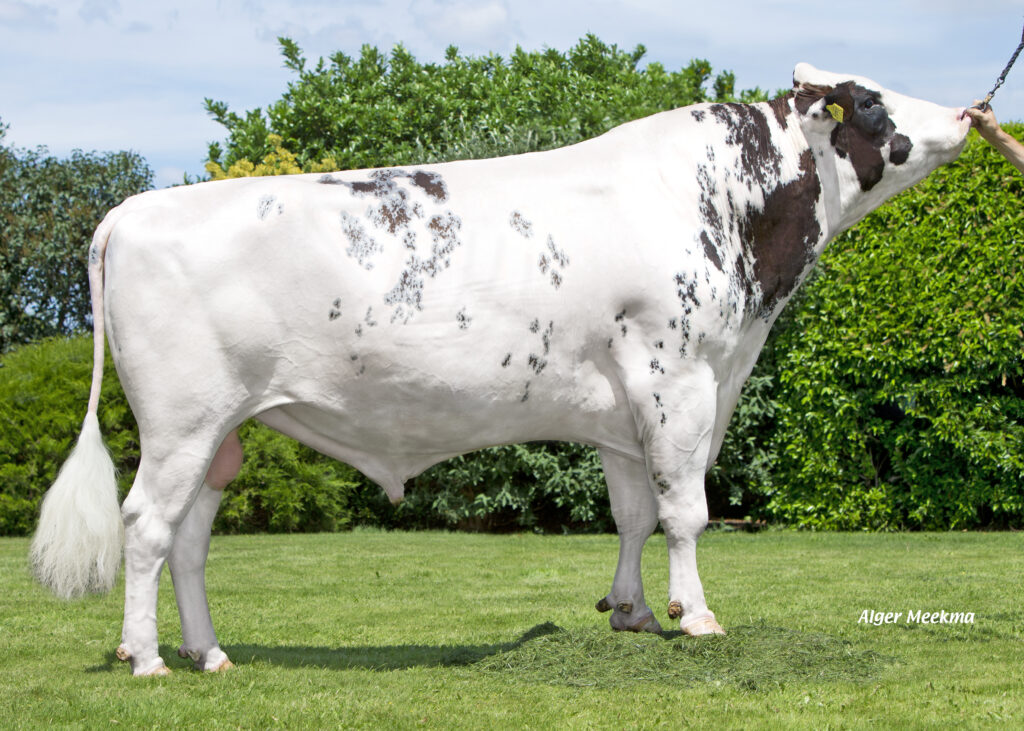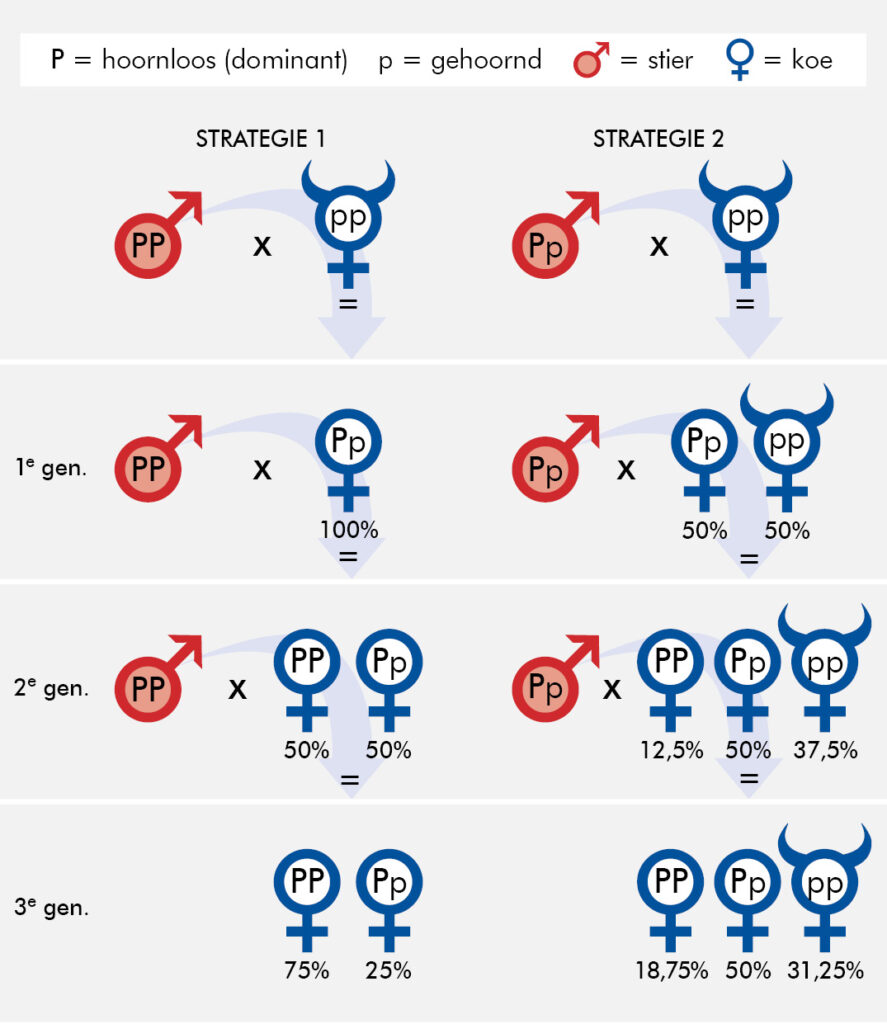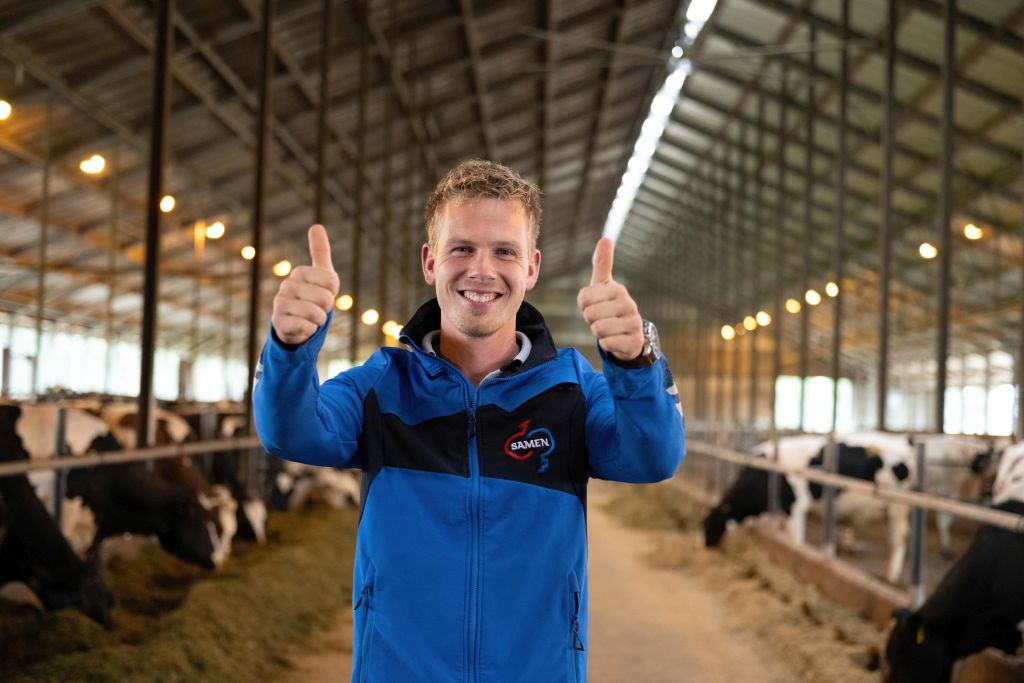The smartest route to a polled herd
Breeding polled cows is a subject that is currently attracting a lot of attention and as a result there is a rising demand for polled bulls. Willem den Besten, breeding technician at K.I. SAMEN: "As well as polledness, farmers are also looking for wider-built cows with more generous chest width. As far as the aAa code system is concerned, the current range of polled bulls doesn't offer sufficient width." Willem recognises the need to breed a wide range of bulls that pass on polledness. K.I. SAMEN has been paying specific attention to breeding polled bulls for quite some time.

There is great interest from the sector in breeding polled cows, but also questions about how to achieve this. Polledness is determined by a gene that is typified with a ‘P’, meaning ‘polled’. A capital letter P signifies polled, a lower case p means horned. Each cow and each bull has a pair of genes for the polledness trait. The majority of cows in a herd are genetically pp. Using a homozygous polled bull (PP) is the fastest route for a farmer to create a polled herd. This means that a homozygous bull will produce polled calves only.
By consistently using heterozygous polled bulls (Pp), after three generations only 30% of the calves will be horned, whereas when homozygous polled bulls (PP) are used, 100% of the progeny will be born polled. Willem: “At K.I. SAMEN, heterozygous polled bulls are still in the majority. However, there is already a strong focus on breeding homozygous polled bulls with sufficient width within our breeding programme, and this group is being paid specific attention.”

Bulls with greater diversity in the pedigree
Willem is happy to explain why diversity in a pedigree is such important weighting factor in the polled breeding programme at. K.I. SAMEN: “If you look at the offering of polled bulls worldwide there is a limited variation in bloodlines. This means that farmers have to look hard to find a homozygous polled bull that offers something different. On top of this, polled bulls able to produce really good cows are also in short supply.” But that is where K.I. SAMEN can help! Willem continues: “A polled bull who genuinely does produce super cows is Grashoek Conqueror (Pp). Because of his wider, more rounded traits, he breeds cows that improve every year. J&G Timeless (Pp) is another bull with a total outcross pedigree for polled, and this has helped him realise the highest scores for survival rate in the red-and-white segment in the Netherlands! His son D’n Driehoek Red Devil (Pp) also contributes to the necessary chest width in the cows. And daughters by Red Devil are perfect for farms that use robot milking.”
“Compared with a decade ago polled bulls have improved massively”
Equal suitability
K.I. SAMEN operates a progressive breeding programme for polledness. “We have a wide portfolio of Holstein bulls that pass on the polled trait and that offer greater diversity in terms of pedigrees,” Willem continues. “And it is certainly worth emphasising that the longevity of these bulls is comparable to the majority of horned bulls. Our polled bulls offer variation in all respects and therefore make a very welcome addition to our range,” confirms Willem. “In fact, if two bulls are equally suitable, many farmers opt for the polled bull.”
K.I. SAMEN – proven results!
Breeding polled animals with a wide range of pedigrees logically takes time. “But just look at the results here in practice,” says Willem waving the latest bull chart. “This bull charts lists many names of homozygous polled bulls. Alongside the homozygous polled bulls (PP) the chart offers a wide range of heterozygous polled bulls (Pp) to choose from. Each and every one is a great, top class bull. In the future, the list of polled bulls will be extended with even more attention devoted to a wide diversity of pedigrees, types of bull (aAa codes) and breeds”, concludes Willem.







